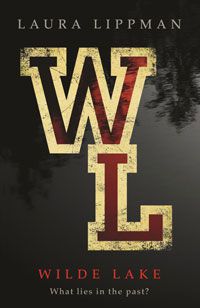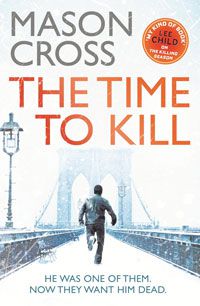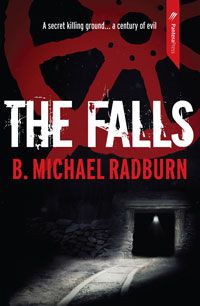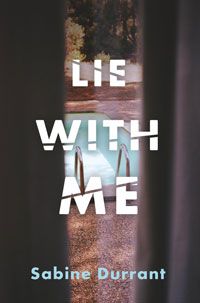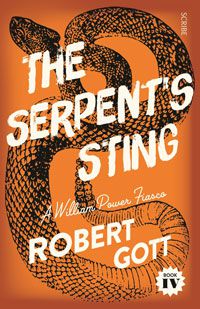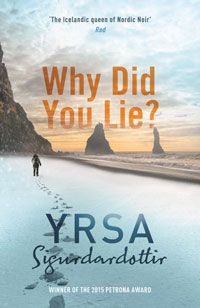CRIME BOOK OF THE MONTH
Wilde Lake by Laura Lippman
As usual, there was a fair internal fight about what should be this month’s Book of the Month (as I’m not allowed to take up eight pages with my extended thoughts on each title), but something about the fallible intimacy of Wilde Lake had me drawn irresistibly to it, to this slice of life, so familiar and all-American – like baseball and freshman parties – yet so foreign.
In Columbia, Maryland, two years after the planned community was built in 1967, Andrew Jackson Brant brings his family to their new house – or an old one, transported to this new place beside a man-made lake. And he builds a legacy: a State’s Attorney raising two children without the wife that died shortly after the birth of their daughter, Luisa. And it is Lu who narrates the story, as both a seven-year-old and as a grown woman, widowed and with two young children of her own, and now the first woman appointed to the same job her father once had.
Lu is dynamite, fiercely clever, engaged with the town she lives in, and absolutely never giving in to anyone. Except for two people: her cherished father and beloved brother, AJ. It is her blind spot to these men that drives the story, as she begins her new job, eager to prove herself, and takes on a murder case that seems simple enough. A woman is beaten to death in her apartment, and the suspect, whose DNA is everywhere, seen by a neighbour lurking around the complex. But the case becomes immediately fraught when the accused killer calls on Lu’s previous boss – the man she ran for Attorney against – as his defendant, and everything in Lu’s life starts to get personal in more ways than one.
Lippman has a fine, delicate hand for a story that runs deep and long into a town’s history and a young girl’s memory, making the book a divine, red-wine pleasure to read. Lu’s arrogance as an adult and painful naivety as a youth deliver a solid, real character, one who doesn’t always want to see the truth but will fight tooth and nail for it. An understated homage to To Kill a Mockingbird, and the successor that shed unfavourable light on its characters, this story of old habits in a new city is a deep lake to lose yourself in.
NEW CRIME FICTION
Man in the Corner by Nathan Besser
The day after David’s wife tells him that she was a sex worker before she met him – a disclosure that doesn’t especially bother him – he suffers an unexpected brain injury. As he recovers, his life starts to go awry: his body suffers side effects, his connection to the company he built begins to fray. Then, one day, he meets the distractingly charming Ben Strbic at a café, who claims to feel a connection with David, and who suggests they would do well in business together. But the business he’s suggesting isn’t entirely above-board, and David feels the pull away from his suburban Australian family existence and into the double life Ben has planned for him, assuming the identity of one Herman Harry Green. And HH Green, who has left his legacy in a series of journals, will leave an imprint on David’s life in more way than one.
The Time to Kill by Mason Cross
I really love picking up a special-ops-type thriller like Cross’s The Time to Kill – they’re always so supremely satisfying. Someone’s usually died in a dramatic, sneaky fashion by the end of the prologue, there’s usually travel to all kinds of international countries (or at least their bars/hotel rooms/abandoned warehouses), the main character knows how to handle themselves, someone gets their comeuppance, people slam phones down in anger – you get it, and you love it too. Here, Carter Blake is five years past Winterlong, a super-secret agency that does lots of super-secret stuff. He kept their super-secrets the whole time, but now Winterlong has decided he’s too much of a loose cannon, and he needs to be dispatched. Unfortunately for them, he knows all their tricks. Unfortunately for him, they know all his. Worse trouble for them (but good news for readers): Carter Blake is part of a series!
Watching Edie by Camilla Way
No one’s watching out for Edie any more. Once a beautiful teenager full of hopes and dreams (and suffering and cattiness), a damaging incident in her youth has sent her down a more sedate and isolated path that expected. Now, at 33, she lives alone in a small flat, just Edie – and her unborn baby. The idea of mothering all on her own is overwhelming, until it turns out someone is watching out for her: Heather, a remnant of her past life, someone she wanted desperately never to see again. And now, at her very weakest, Heather is the only person there for her. But it’s a friendship that relies too heavily on secrets, on dark pasts and unspoken thoughts, on a youthful friendship weighed at the time on uneven scales. History never stays hidden in crime fiction, but Way’s ability to wrong-foot her readers makes for a disconcerting, addictive read.
The Falls by B. Michael Radburn
Two hikers abseil down the side of a cliff in Victoria’s rugged east, searching for an old abandoned mine that has slipped into local mythology. Expecting an untouched landscape and endless gold, they instead find a fresh footprint – and a dead body, the blood still fresh on her chest. Their panicked, heart-stopping escape back to civilisation is hampered by a fire on their tail, but one of the hikers knows that the fire isn’t the only thing chasing them. When the police return to the site to find the body, there is nothing to be found. But when there’s nothing to be found, there’s one man who can find it: Taylor Bridges, park ranger, and a man who has had more than his fair share of experiences finding dead bodies, and those who caused them. A regional thriller where you can feel leaves crunching underfoot and the fire crackling in the bush, and where the horrors of the past are still too close for comfort.
Lie with Me by Sabine Durrant
Be warned, fair reader – much of this month’s reading will remind you that the past never really leaves you, so it’s best to clean those skeletons out of your closet before you dive into these. Paul Morris is a writer getting by mostly on reputation and the goodwill of others rather than any current success, and who is about to find himself bereft of a place to live and returning to his mother’s home. A series of small embellishments lead him to rekindle old friendships and wheedle an invite to a final summer hurrah in Greece, where he hasn’t been for ten years, since he was younger and perpetually drunk. But Paul’s tiny little lies, only told to make himself seem less of a shambles amongst the friends he doesn’t feel quite comfortable with, are not so small when taken all at once… or taken by somebody else.
The Secrets of Wishtide by Kate Saunders
Like many readers, I came to crime fiction by way of Agatha Christie and her ilk: delicious tales of detectives who are quick-witted, able to read people clearly, and blend with anyone who can give them information. And so now I come to Laetitia Rodd, a discreet private detective of the mid-nineteenth century, and a lady who won me over almost instantly in the way that the best Christies do. Letty is in her early fifties, a widow who misses her Archdeacon husband dearly, and who finds herself in unfortunate circumstances, which have led her to a life of solving crimes to keep her in 1850s-type comforts like lots of coal, even more brandy and a helping of delightful-sounding puddings. Here, in the first book of (thankfully) many, she is called to impersonate a governess and spy on a woman who has captured a rich man’s heart – but who is perhaps not the proper young lady she purports to be. This is the literary equivalent of a comforting roast stew with a hearty dash of spice.
The Serpent’s Sting by Robert Gott
Look, after a few excellent yet grim crime books, you often want to get your serving of carnage and criminal acts dished up alongside a few laughs. Noted raconteur Robert Gott is exactly that man to deliver, his glorious hero William Power – actor, private detective, memoirist – the man to follow. It’s late 1942, and Will is short on money and shorter on patience with his family; from his beloved but untrustworthy brother Brian, to the dreary notion that his mother will soon wed her fiancé and bring new, unwanted siblings into his life. Will suffers the best kind of arrested development – all the playfulness and recklessness of a small child, full of melodrama, self-importance, endless humour and wisecracks, and riotously, unfairly entertaining to boot. And, of course, his talents in the field of detection are required when his soon-to-be stepbrother asks him to do an investigation into a possible murder, and a fellow actress in the (literal) pantomime he finds himself in vanishes. Thrillingly local for our Carlton-based readers, and just excellent for the rest, Gott’s fourth William Power book is a continuing delight.
Why Did You Lie? by Yrsa Sigurdardottir
Iceland, January, 2014. Helgi, a photographer, has pulled off a coup: he’s heading to a remote lighthouse in the middle of the sea, surrounded by four towering rock pillars. It’s a visually beautiful spot, its grandeur never properly captured on camera. He’s helicoptered in, with three people tasked with upgrading the lighthouse, even though there’s barely enough room for one person on the entire rock, let alone four, let alone for more than a day – let alone when you have the bad feeling Helgi does. On the mainland, maligned police officer Nína has been relegated to a job clearing out a storeroom when she stumbles on part of a decades-old file about an old suicide that mentions her husband – who attempted suicide eight weeks before, and now lies motionless in a hospital bed. Elsewhere, a family get home from a house-swap holiday to find their place not as it was – things missing, a wrong feeling permeating the air. Three different groups of people, connected by one long-ago lie.


